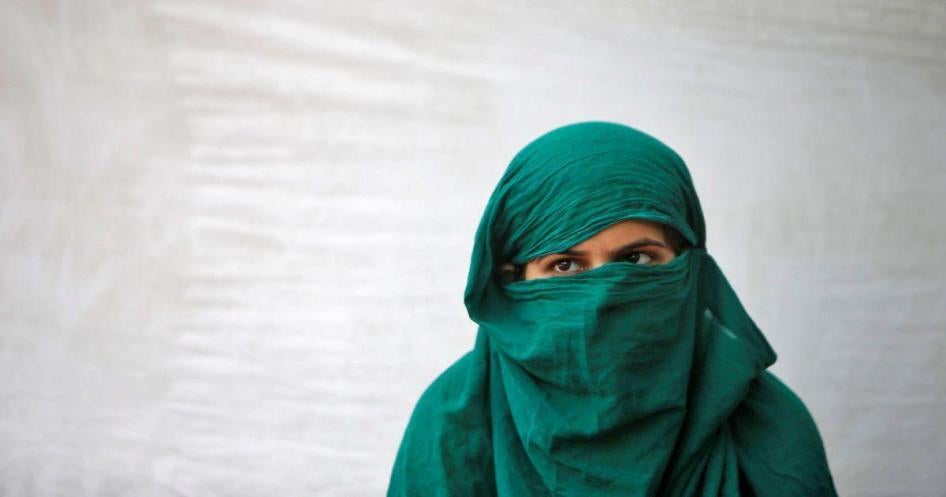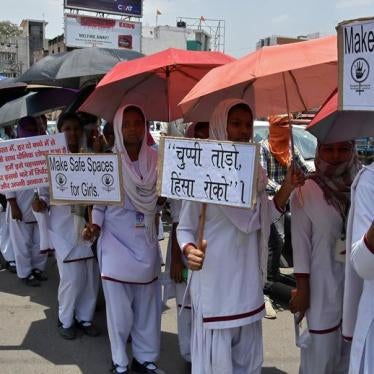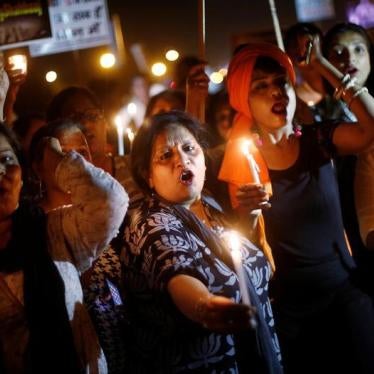In response to “stranger danger” fears, India has become the ninth country to adopt a sex offenders’ database, with personal details of those convicted for rape and sexual assault. The year-old database contains 500,000 names and will be used for “regular monitoring and tracking” by the police, the government says.
Strong efforts at every government level are critical to prevent sexual abuse and prosecute culprits-and officials cited a serial offender to justify this database. But latest crime figures show that in almost 95 per cent of the 38,947 rapes recorded in 2016, the accused was known to the victim. In the absence of better law enforcement and adequate safeguards, the database will do little to advance change.
The government is under pressure from public demands to better address rampant sexual violence. But instead of populist or short-term technological solutions, it needs to do the hard work of breaking entrenched structural barriers that survivors face in reporting these crimes and obtaining justice.
In my 2017 report for Human Rights Watch, “‘Everyone Blames Me’: Barriers to Justice and Support Services for Sexual Assault Survivors in India,” I found that sexual assault survivors, particularly from marginalised communities, still face formidable obstacles when reporting to police. They often suffer humiliation at police stations and hospitals, are subjected to degrading medical exams, such as the “two-finger test,” and have little protection from retaliation by the accused. They face significant barriers to obtain healthcare, counselling and legal aid. The government has yet to put in place effective mechanisms to prevent child sexual abuse. The challenges are even greater for women and girls with disabilities.
Studies by Human Rights Watch and the American Civil Liberties Union show public sex offender registries in the US have done more harm than good. They frequently lead to harassment, ostracism and violence against former offenders and impede their rehabilitation.
The Indian database for each entry includes the name, address, photograph, fingerprints and details of Aadhaar card, which carries biometric data. For now, the government says, only law enforcement officials will have access. However, officials confirm that in future, the database will include people who were charged, but never convicted. Making this database public has not been ruled out.
The government’s invite of bids from companies to develop this database said it would include details of all those arrested, charged or convicted of sexual offences, including children. Information on the convicted offenders would be public while law enforcement agencies would have access to the rest. It proposed categorising the individuals as “low,” “moderate,” or “high risk.” Whether or not a person gets added can depend on archaic laws open to misuse. The government’s recent move to acquire an automated facial recognition system to identify criminals-and ostensibly improve policing-exacerbates concerns regarding privacy, surveillance and civil liberties.
Rape is under-reported in India, largely because of social stigma, victim-blaming, poor response by the criminal justice system, and the lack of any national victim and witness protection law. Rape survivors are highly vulnerable to pressure from the accused and police not to report. Child victims are even more vulnerable to family and societal pressure.
The government says the database will not compromise privacy, but the absence of laws to protect privacy and data in India raise further concerns. With vigilante violence on the rise, a data breach or rumours of inclusion in the registry is especially dangerous. Little is known about the dissemination of database information and whether it could perpetuate discrimination. Would a private employer seeking a background check on a prospective employee get this information?
To address sexual abuse, the government should work closely with women’s and children’s rights groups to reform the criminal justice system and promote a survivor-centred approach, focusing on evidence-based solutions. A sex offender registry is not the answer.










